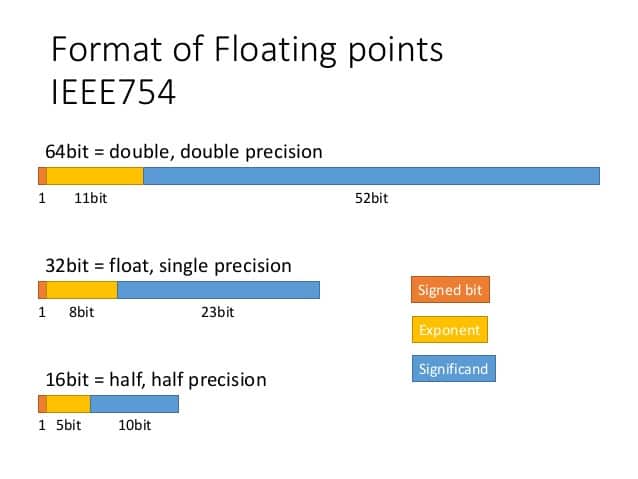
figs (e &: 3.45 x 1025), and show vour workl (What did you start with in binary and how did vou get that to decimal?) Compare your value to today' $ double-precision computers (Just type rea lmax In MATLAB) Express your value as base 10 floating-point numbers with 3 sig.

Well In my college days the standard was single precision floating point notation in 32-bit words: 23 bits bitsĪny Number = +/- (1.bbb_bbblz X 2 (bbbbbbbbz- 127 10l That is, the mantissa is always assumed to start with a 1 with 23 bits afterwards, and the exponent is an eight bit integer (from OOOOOOO1 to 11111110) biased bY subtracting 127 to allow for an almost equal range of positive zero, and negative exponents And it still reserved all exponent bits identically equal to OOOOOOOO for the number 0 (and denormal" numbers), and IIII111 forĮvaluate REALMAX (the largest possible positive number that is not infinity) for my (1990s) single precision computer.

Where each bit represents the digit 0 or 1.Īny Number = +/- (1.bbb_bbblz X 2 (6b6 ~Ebb_ 1023, That is, the mantissa is always assumed t0 start with 1,with 52 bits afterwards, and the exponent Is an eleven bit integer (from O00.

Recall from class that MATLAB uses standard (IEEE) double precision floating point notation:


 0 kommentar(er)
0 kommentar(er)
